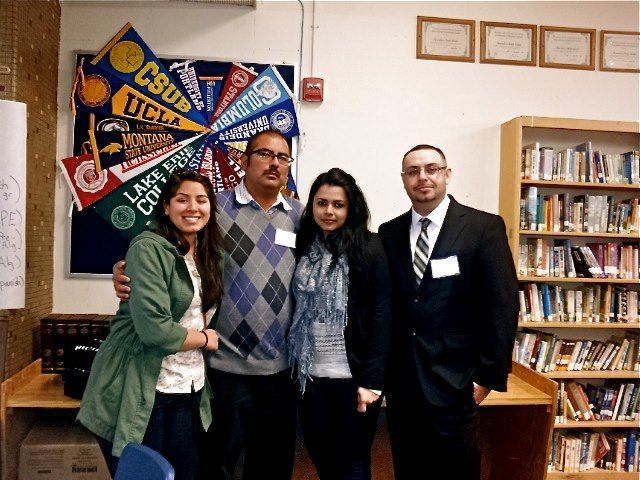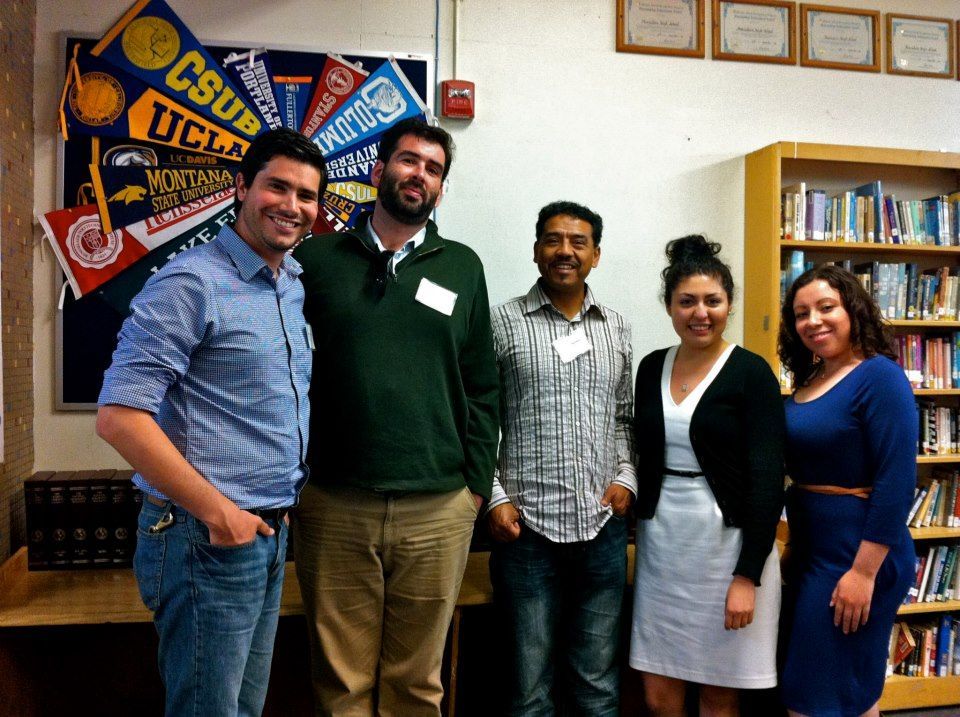Nowhere is California’s language divide more evident than in schools – not only between English-speaking teachers and students who are English Language Learners, but also between teachers and students’ parents, who sometimes speak no English at all.
For years, the all-important parent-teacher conference has been a frustrated exercise in imperfect communication for both teachers and parents in the La Honda-Pescadero Unified School District. That began to change this spring, when the school district asked Puente to help to recruit Spanish-English interpreters to broker the parent-teacher meetings that occurred in April.
For the first time, students themselves were absolved of having to “stand in” as a translator at meetings where teachers discuss their progress with their parents. Both Puente and the school district realized this created a potential conflict of interest, among other issues.
“These teens are in the interpreter role when the subject is them. This immediately struck me as awkward at best. It’s also an inversion of position of authority within the family,” says Suzanne Abel, Puente’s Academic Director.
Pescadero Middle/High School Principal Pat Talbot was equally concerned. At her behest, Puente worked hard to recruit 12 bilingual interpreters whom gave up their work or school commitments to spent one or two days in back-to-back parent-teacher meetings.
In addition to their facility in Spanish and English, this crop of highly qualified interpreters was sourced from graduate programs at Stanford University and from the Teaching Assistants in Prof Larry Trujillo’s San Francisco State University class. Some are training to be educators themselves or already have professional education backgrounds.
The results were outstandingly helpful, says Randy Vail, an English and History/Social Studies teacher. He effusively praised his translator, Eduardo Muñoz Muñoz, who is a PhD student at Stanford and a former school principal in Oakland, born and raised in Spain.
For parents, too, it was a revelation. Many parents understood for the first time how a student was expected to perform – school behavior, homework, and teacher/parent support – all were put in the context of student success.
While some students may have been less than thrilled that their parents are now getting a fuller picture, it’s important for students, parents and teachers to partner to make academic performance a high priority.
The school district holds parent-teacher conferences twice a year. Puente is now working on finding resources to help the schools pay the interpreters. Abel says she would like to see a sustained program at Stanford University to train and recruit parent-teacher interpreters.
To learn more about the interpreter program or to make a donation, contact Academic Director Suzanne Abel at (650) 879-1691 ext. 149; or sabel@mypuente.org.






